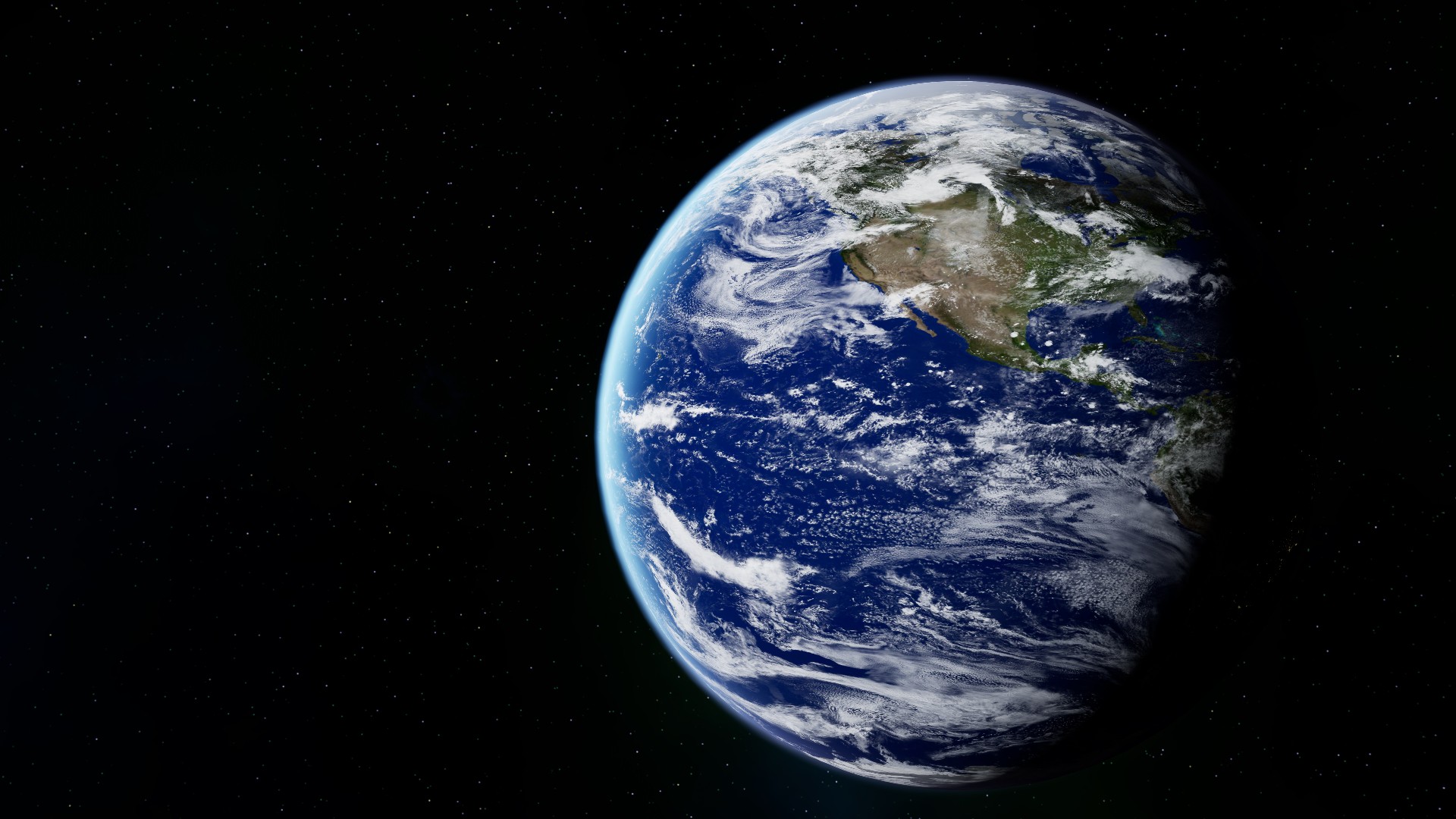Is Earth expanding or shrinking?
Is this gain or loss in mass a threat to life on Earth?

Like any good gift giver, Earth is constantly giving and receiving materials with the surrounding solar system. For instance, dust speeding through space regularly bombards our planet in the form of shooting stars, and gases from Earth's atmosphere regularly seep out into space.
So, if Earth is continuously giving away matter, as well as acquiring new material, is it expanding or shrinking?
Because of Earth's gaseous gifts to space, our planet — or, to be specific, the atmosphere — is shrinking, according to Guillaume Gronoff, a senior research scientist who studies atmospheric escape at NASA's Langley Research Center in Virginia. However, we're not shrinking by much, he said.
Related: What happens in intergalactic space?
Planets are formed by accretion, or when space dust collides and increasingly builds up into a larger mass. After Earth formed about 4.5 billion years ago, a small amount of accretion continued to happen in the form of meteors and meteorites adding to Earth's mass, Gronoff said.
But once a planet forms, another process begins: atmospheric escape. It works similarly to evaporation but on a different scale, Gronoff said. In the atmosphere, oxygen, hydrogen, and helium atoms absorb enough energy from the sun to escape the atmosphere, according to Gronnoff.
So how do these processes affect Earth's overall mass? Scientists can only estimate.
Get the world’s most fascinating discoveries delivered straight to your inbox.
"Of course, it's still research, because it's difficult to measure the mass of the Earth in real time," Gronoff told Live Science. "We don't have the weight of the Earth at the precision needed to see if the Earth is losing or gaining."
But by observing the rate of meteors, scientists estimate that about 16,500 tons (15,000 metric tons) — about one and a half Eiffel Towers — impacts the planet every year, adding to its mass, Gronoff said.
Meanwhile, using satellite data, scientists have estimated the rate of atmospheric escape. "It's something like 82,700 tons (75,000 metric tons) or 7.5 Eiffel Towers," Gronoff said. That means Earth is losing about 66,100 tons (60,000 metric tons) per year. While that sounds like a lot, in the context of the whole planet, "it's very, very, very small," he said.
Using estimates for atmospheric escape established over the past hundred years, Gronoff calculated that, at a rate of 60,000 tons of atmosphere lost per year, it would take 5 billion years for Earth to lose its atmosphere if the planet had no way to replenish it.
However, the ocean and other processes, like volcanic eruptions, do help to replenish Earth's atmosphere. So, it will take more than 3,000 times that long — roughly 15.4 trillion years — before Earth will lose its atmosphere; that's about 100 times the life of the universe, he said. But long before that happens, Earth will likely be uninhabitable anyway because of the evolution of the sun, which is expected to turn into a red giant in about 5 billion years. "So the escape of the atmosphere is not the problem in the very long run," Gronoff said.
So, while we can all applaud Earth for being a good philanthropist, graciously giving its atmospheric gases to space, we can also rest assured that Earth's shrinking size is not imperiling life on Earth.
Originally published on Live Science.

Donavyn Coffey is a Kentucky-based health and environment journalist reporting on healthcare, food systems and anything you can CRISPR. Her work has appeared in Scientific American, Wired UK, Popular Science and Youth Today, among others. Donavyn was a Fulbright Fellow to Denmark where she studied molecular nutrition and food policy. She holds a bachelor's degree in biotechnology from the University of Kentucky and master's degrees in food technology from Aarhus University and journalism from New York University.

